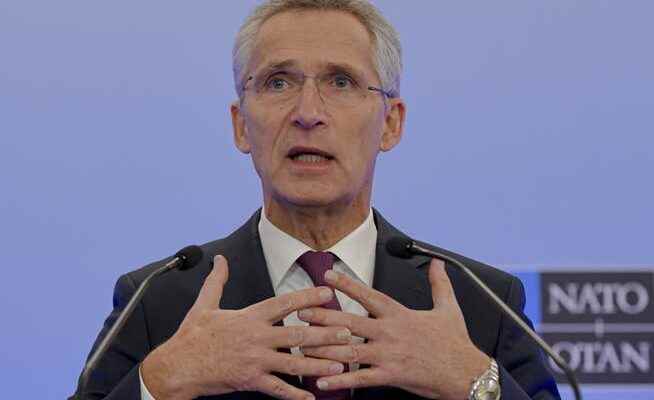It is important that the allies do everything they can to support the country in its defense against Russia. Under no circumstances can the West afford «Ukraine fatigue».
NATO Secretary General Jens Stoltenberg accuses Russia of using winter as a weapon of war.
It’s no secret that “Ukraine fatigue” is one of Vladimir Putin’s most important weapons. The Kremlin boss speculates that war fatigue is spreading in the West and that societies in North America and Europe are showing less and less willingness to support the country under attack.
What is particularly perfidious is that the falling temperatures are playing into Putin’s hands. With targeted attacks on Ukraine’s energy infrastructure, his troops ensure that electricity, water supply and heating fail. Hundreds of thousands could again set off for Western Europe, given the choice of fleeing or freezing to death.
“President Putin is now trying to use winter as a weapon of war against Ukraine,” NATO Secretary General Jens Stoltenberg said at a meeting of NATO foreign ministers in Bucharest this week. “But he will not be successful with it,” believes the Norwegian.
Terror as a tactic
Indeed? One can only hope so. In any case, the Russian ruler is not showing any qualms about continuing to terrorize the Ukrainian civilian population. The underlying idea of breaking people’s will to persevere has a military purpose for Moscow. The world has known this not only since the Syrian war, which Putin praised as an “invaluable experience” for the Russian army.
In Bucharest, the 30 foreign ministers of the Alliance took the “winter weapon of war” as an opportunity to organize civilian aid supplies for Ukraine. It was about providing blankets and tents, warm clothing and diesel generators, but also about jammers to ward off drones.
Setting this priority is not only necessary from a humanitarian point of view. It is also in line with NATO’s policy of not supplying any lethal goods itself. Weapons, as Stoltenberg repeatedly emphasizes, can ultimately only be supplied by the respective member states; NATO as an organization has its hands tied because otherwise it would be seen as a war party.
To what extent this line can be maintained is another question, because the pressure to intervene militarily could increase if the images of war become unbearable. For this reason alone, the alliance is doing everything it can to help Ukraine through the cold season.
But unless member states’ hands are tied to supply more arms, current Western efforts can only disappoint. There is much that the Ukrainians urgently need in the way of war equipment, not only to hold their own in the wintry battle of attrition against Russia, but also to retake their country.
fighter planes? Yes, please
There is still a lack of tanks, there is a lack of anti-aircraft systems and yes, there is also a lack of fighter jets to turn the tide of the war in Kiev’s favour. The wish list that the invited Ukrainian Foreign Minister Dmitro Kuleba brought to Bucharest was long. But most of his colleagues in office held back with concrete promises.
NATO sources say that some members, such as the Baltic states, have already exhausted their potential to help out. Other countries such as Germany and France remain far below their potential, but there are also political reservations. War weariness is not least evident in the USA, where the isolationists are gaining influence.
Perhaps Ukrainian President Zelenskiy, who called for NATO to intervene after the rocket hit Poland two weeks ago, strained the solidarity of the allies a little himself. The projectile was probably an anti-aircraft missile from Ukraine.
But with all the sacrifices that the country has made in its almost ten-month defensive struggle against Russia, and with everything that is at stake for Europe, “Ukraine fatigue” is the last thing the West can afford.
